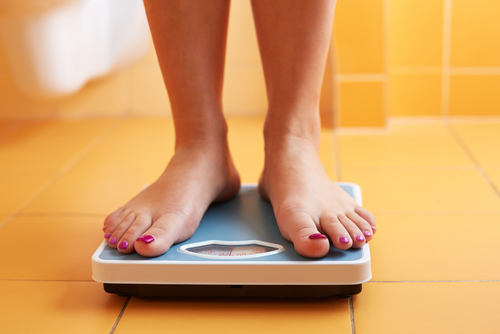No. 10 – “Obesity and Diabetes Damage Bones, but Exercise May Counter Effect”
Researchers continue to uncover the damaging effects of obesity on the body, with the discovery of new comorbidities that underscore the need to address the epidemic. A team at the University of Missouri-Columbia have linked obesity and type 2 diabetes to several health issues, including increased risk of bone fractures. In an innovative animal study, the MU investigators examined how development of obesity and insulin resistance contribute to bone-fracture risk and the potential role of exercise in protecting bone health.
No. 9 – “New Research Program To Search For Nutritional Solutions to Obesity, Poor Metabolic Health”
The new National Science Challenge, “High-Value Nutrition,” donated $2.9 million in new funding to a New Zealand-based research program focused on nutritional solutions for obesity and poor metabolic health. The Challenge, one of 11 national science challenges, was launched with an investment of $10.9 million for studies in the fields of nutrition and food science. The effort brings together New Zealand’s top food and nutrition researchers and a range of organizations with the aim of helping reduce diabetes and heart disease, and of developing new ways of promoting nutrition that can improve gastrointestinal health and immune system defenses.
No. 8 – “Does Gastric Band Improve Quality of Life in Obese Patients?”
A new study, published in the journal Surgery for Obesity and Related Diseases, revealed that gastric banding surgery in morbidly obese patients improves their health-related quality of life up to three years after the procedure. The researchers collected data from a prospective, multi-center, three-year Italian study of 230 patients assessing changes on health-related quality of life after laparoscopic adjustable gastric banding (LAGB) using the Lap-Band Adjustable Gastric Banding System. The study was conducted by the Italian Group for Lap-Band (Gruppo Italiano Lap-Band – GILBPLUS). The research team concluded that the overall improvements in health-related quality of life reported one year after gastric banding surgery were sustained up to three years in these patients, and confirmed the efficacy of restrictive gastric banding surgery on patients’ health-related quality of life overall.
No. 7 – “Can You Feel a Lap-Band Port?”
Gastric Band advocate and blogger Karen Gillman writes about how it feels to have a Lap-Band port. A gastric band, commonly known as the Lap-Band, is a silicon band placed around the upper portion of the stomach. On the inside of the band is a balloon, with an attached tube that connects to a port that is located just under the skin, typically placed close to the belly button.
No. 6 – “Five-Year Follow-Up Study Shows LAP-BAND Is Safe and Effective for Obese Patients With BMI of at Least 30”
Five-year results from a multi-center clinical trial investigating the safety and efficacy of LAP-BAND adjustable gastric banding system in patients with a body mass index (BMI) of 30–39.9 kilograms per square meter show that patients experienced significant weight loss and beneficial health outcomes. Researchers believe that the LAP-BAND is effective in treating obesity because it leads to greater satiation and fullness during meals, helping to prevent patients from binge eating. The weight loss device may also help patients make better decisions about food since, according to the results of functional magnetic resonance imaging (fMRI) of the brain, LAP-BAND patients encountering visual food cues have reported higher-level perception in their brains.
No. 5 – “ORBERA Intragastric Balloon Weight Loss Procedure Featured on Dr. Oz”
A review of Apollo Endosurgery’s ORBERA Intragastric Balloon Weight Loss Procedure that aired in October 2015 on Dr. Oz’s popular healthcare talk show. The segment, which explored how the weight loss device and supporting program aids obese patients in losing weight, marks ORBERA’s continued rise in popularity since its recent approval by the U.S. Food and Drug Administration.
No. 4 – “RYGB Surgery May Impact Bone Health in Type 2 Diabetes Patients”
A study evaluated the impact of Roux-en-Y gastric bypass (RYGB) and laparoscopic adjustable gastric banding (LAGB) on bone health in type 2 diabetes patients. Findings from the study add to the body of scientific evidence showing the adverse impact that obesity and weight loss surgery can have on bone health, as well as the importance of supplementation after bariatric surgery to ensure that patients receive proper nutrients.
No. 3 – “Can Bariatric Surgery Lower Heart Disease Risk?”
Findings from this study indicate that heart function in patients with morbid obesity returns to normal after bariatric surgery, but not necessarily after lifestyle interventions. The results suggest that bariatric surgery may decrease the risk of cardiovascular disease in these patients. The study was published in the European Journal of Preventive Cardiology.
No. 2 – “LAP-BAND® Safe and Effective for BMI 30-40”
In this report, researchers concluded that the LAP-BAND surgical system is a safe and effective therapy for people with a BMI of between 30 and 40 kilograms per square meter, as well as those for which it is FDA approved, after demonstrating its effectiveness in sustained weight loss, reduced health risks, and improved quality of life in the target population.
No. 1 – “Can Diet Alone Help Obese Patients Achieve Normal Body Weight?”
In a study published in the American Journal of Public Health, a team of researchers led by King’s College London found that the chance of an obese person achieving a normal body weight without the use of bariatric surgery is 1 in 124 for women and 1 in 210 for men. In the case of severe obesity, this rate increases to 1 in 677 for women and 1 in 1,290 for men. The study outcomes indicate that the probability of attaining normal weight or maintaining weight loss is low when utilizing non-surgical approaches to medically supervised weight loss.
Be sure to continue to follow Obesity News Today daily in 2016 for continuous updates on the latest science, research, and advocacy news concerning bariatric surgery, obesity, and comorbidities related to the disease.


